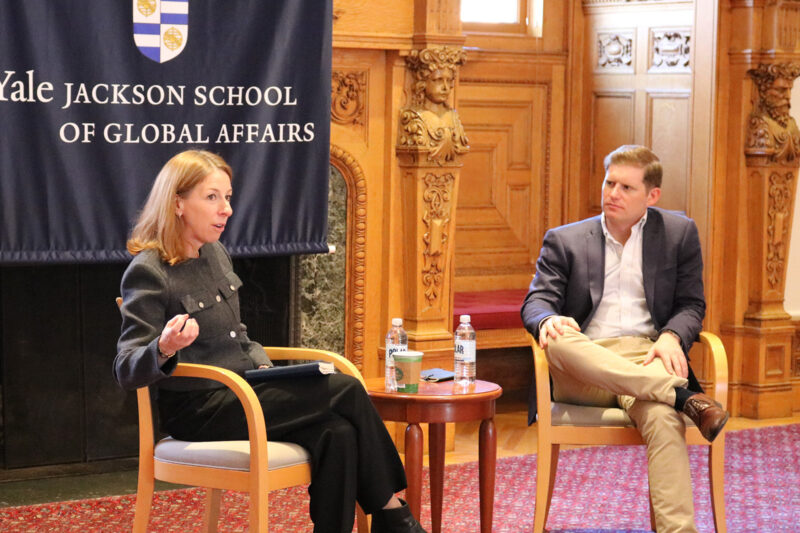Following Russia’s invasion of Ukraine, the European Union announced its intent to impose a total ban on services related to the maritime transport of Russian oil — a policy that would have inadvertently caused global oil prices to skyrocket. It was up to Elizabeth Rosenberg and her then-colleagues at the U.S. Treasury to “make lemonade out of the lemons” of the mistaken policy, she said in a December 3 talk hosted by the Blue Center for Global Strategic Assessment.
“Russia is one of the largest global oil producers,” explained Rosenberg, the former Assistant Secretary of the Treasury for Terrorist Financing. “Even modest diminishments of their exports would have had a pretty outsized effect on price, and the surest way to send the global economy into a recession is to spike the price of oil.”
Rosenberg previously served in the Department of the Treasury during the Obama administration, working on formulating counter-terrorist financing, anti-money laundering policy, and economic sanctions. She directed the Center for a New American Security’s Energy and Economics Program from 2013-2021, before returning to Treasury during the Biden administration.
After leaving the Treasury, Rosenberg joined Bank of America, where she currently serves as the company’s managing director for global financial crimes. Working for Bank of America has given Rosenberg a new perspective on how major criminal enterprises operate.
“It’s our job to try and look across every single transaction, every single relationship,” she said.
Her discussion, moderated by Blue Center executive director Phil Kaplan, spanned her expertise in financial strategy in her work for the government, think tanks, and the private sector.
“Liz has seen both sides of this problem,” said Kaplan. “She’s been in government, drafting rules and regulations. She’s been in the financial services industry, meeting with government and being on the private implementation side of a lot of these rules.”
